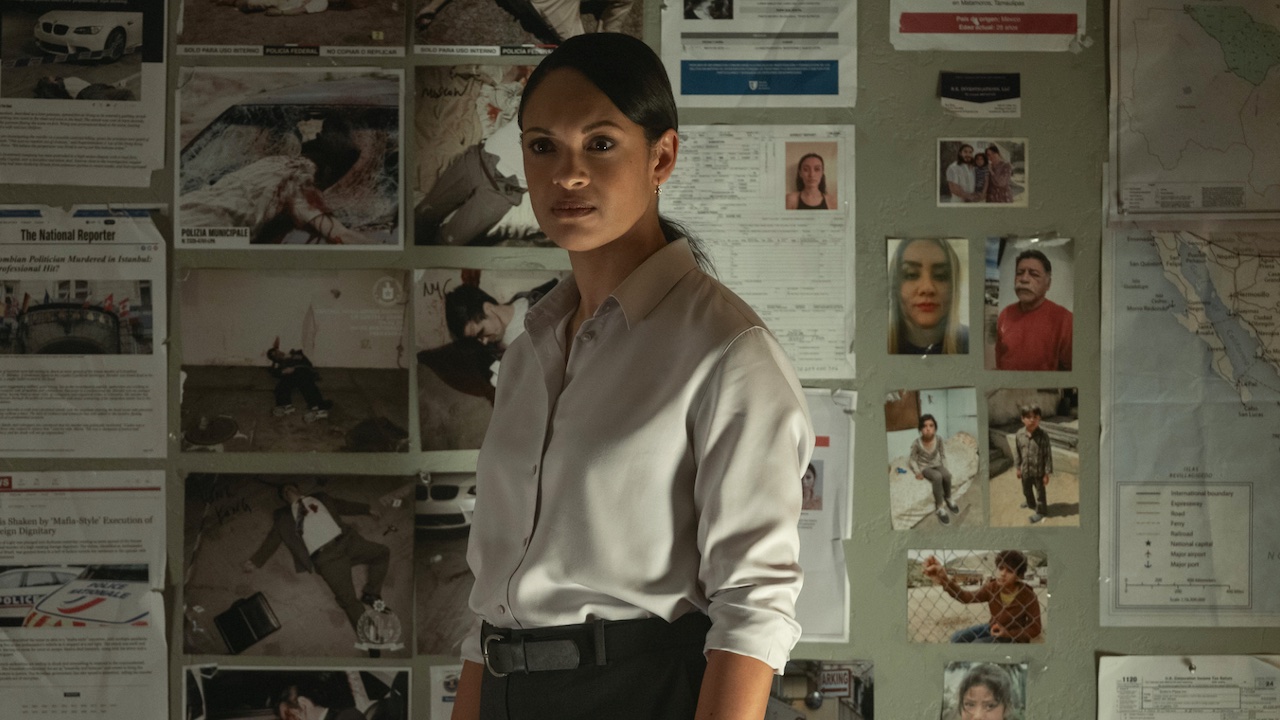The outing of CIA agent Valerie Plame was one of the more intriguing—and confusing—bits of scandal among many in the Bush administration. It was inevitable that some filmmaker would take it upon himself to untangle the web of who-said-what and who-leaked-to-whom to tell the story, either of wronged agent Plame or Judith Miller, the New York Times reporter who revealed Plame’s identity and served jail time when she refused to reveal her confidential source.
Rod Lurie, given the Washington insider knowledge he displayed with The Contender, would seem a natural fit for the story, his claustrophobic close-ups emphasizing the fishbowl world of D.C’s power elite. But even helped by strong performances from Kate Beckinsale and Vera Farmiga, Nothing But the Truth is flat and unexceptional, the bureaucratic, talky parts of a political thriller without the action sequences as payoff.
The details of the case have been changed slightly from the Plame case, though not enough to make it any easier to keep track of the central players. Rachel Armstrong (Beckinsale) is the national politics reporter for a Washington paper who has discovered that Erica Van Doren (Farmiga), an acquaintance, was sent by the CIA to Venezeula, to investigate whether they were behind a recent assassination attempt on the President. She determined they weren’t, but airstrikes on the country began anyway, and her husband—an ambassador—began writing a series of newspaper editorials criticizing the war. Rachel determines that the husband’s outspoken opinion makes the wife’s job newsworthy, and with the support of her editor Bonnie (Angela Bassett), she runs the story.
The ax falls almost immediately. Rachel is contacted, subpoenaed and eventually jailed by Patton Dubois (Matt Dillon), a smooth-talking Arkansas lawyer hired to suss out her source. The paper in turns hires Albert Burnside (Alan Alda), a veteran attorney who tries, unsuccessfully, to defend Rachel’s First Amendment rights against the government’s national security concerns. Rachel languishes in jail for nearly a year, growing apart from her husband (David Schwimmer), while Erica is cut out of her own life “for her own safety,” and eventually quits the CIA.
Depicting the conflict between Erica and Rachel, Lurie admirably shows both sides, with both women struggling with the newfound realities of their lives. But when it comes to the defenseless reporter vs. the big bad government, the story is laughably lopsided; Dillon’s snot-nosed lawyer seems to have an almost personal vendetta against Rachel, and the stakes of the case never seem so high that there would be any legitimate national security concern. But Rachel’s high-minded legal team is not much more appealing. At one point Rachel even makes a big speech about how, if she were a man, more people would care about her rotting in a jail cell; that’s the point where the movie goes from mildly topical to completely off the liberal rails.
Nothing in the movie feels real, whether the fight Rachel picks at the women’s prison or Dubois and Burnside’s oral arguments at the Supreme Court. And though Farmiga gets in some good scenes as the frustrated former agent, Beckinsale falls in the trap that Angelina Jolie did in Changeling, playing a wronged character who never moves emotionally beyond “righteous anger.” The less said about performances from Dillon, Schwimmer and the always underused Bassett, the better.
With its earnest title and unwavering devotion to the moral principles behind its story, Nothing But the Truth could have stood for a little humor, a little reality, and a little bit of gray in its dogmatically black-and-white view. It’s more of a moral lesson than a story about actual people—despite the real people who inspired
Staff Writer at CinemaBlend












